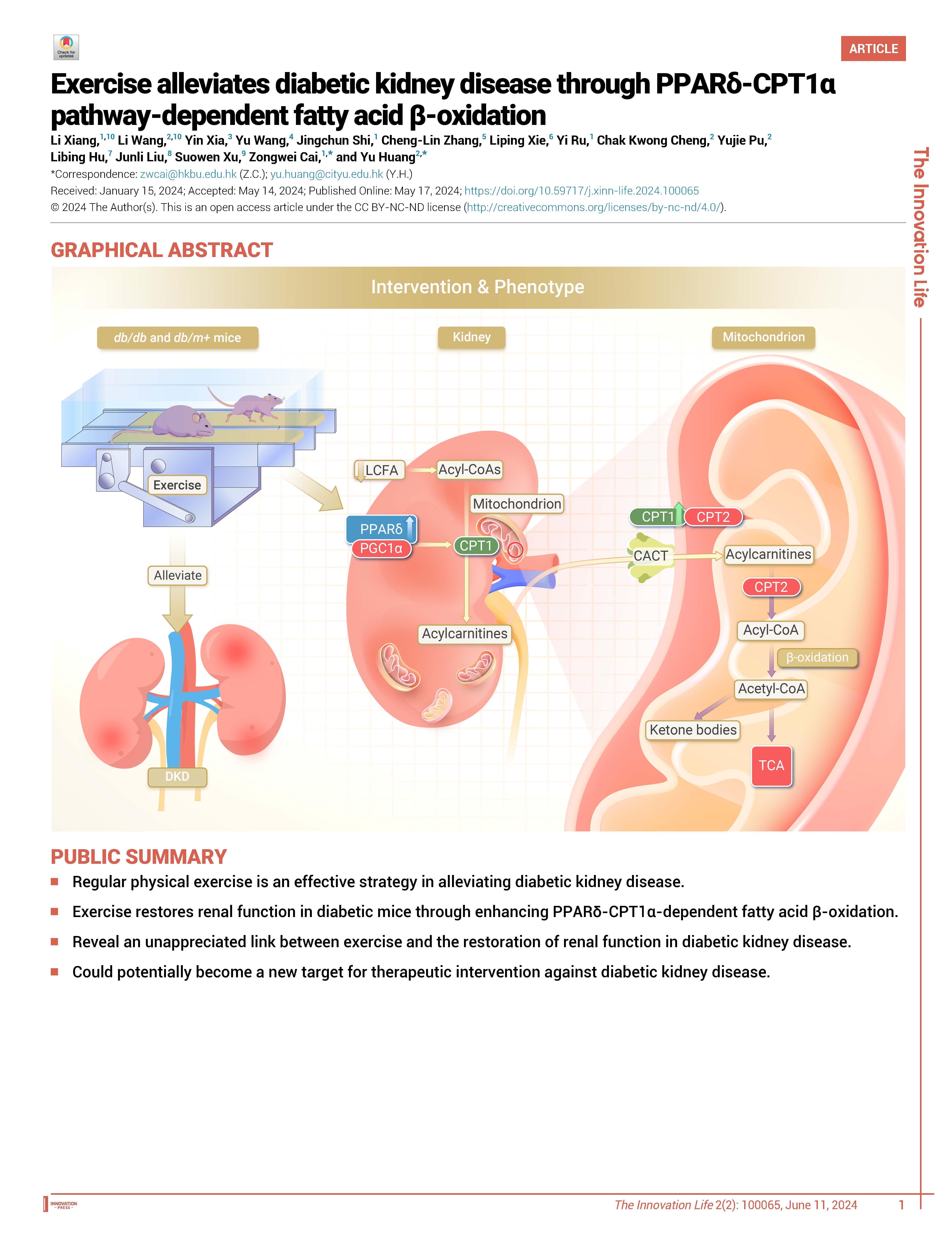News
Research-Spotlight - Dr Xiang Li conducted a study highlighting Exercise alleviates diabetic kidney disease through PPARδ-CPT1α pathway-dependent fatty acid β-oxidation
Diabetic kidney disease (DKD), a severe diabetic complication affecting approximately one-third of diabetic patients, is the leading cause of end-stage chronic kidney disease. The benefits of regular exercise for patients with DKD have been well documented, particularly in overweight patients with DKD. However, the underlying mechanisms are incompletely understood. The present study demonstrates that exercise improves kidney function in diabetic db/db mice through activating PPARδ-mediated fatty acid β-oxidation (FAO). Twelve-week treadmill running exercise improved kidney function in db/db mice. Metabolomics and transcriptomics profiling analysis collectively revealed that dysregulation of FAO in db/db mice was largely corrected by running exercise. KEGG pathway enrichment revealed that PPAR pathway, a critical signaling cascade in FAO and exercise, is involved in DKD, suggesting PPARδ activation protects renal function through promoting FAO. Which was confirmed by improved renal function and enhanced FAO in db/db mice treated with PPARδ agonist GW501516. Oppositely, PPARδ-specific inhibitor GSK0660 abolished exercise-mediated improvement in renal function and FAO. In combining with gene expression profiling data we identified CPT1α, the rate-limiting enzyme in fatty acid oxidation, was suppressed in the kidney of diabetic mice and reversed by exercise and the PPARδ agonist GW501516. The findings hint at a potential role for the PPARδ-CPT1α pathway in exercise-induced improvements in diabetic renal function and may warrant further exploration of the PPARδ-CPT1α pathway as a therapeutic target in DKD.
The research findings were published in The Innovation Life under the title "Exercise alleviates diabetic kidney disease through PPARδ-CPT1α pathway-dependent fatty acid β-oxidation".
Link: https://www.the-innovation.org/article/doi/10.59717/j.xinn-life.2024.100065

The research findings were published in The Innovation Life under the title "Exercise alleviates diabetic kidney disease through PPARδ-CPT1α pathway-dependent fatty acid β-oxidation".
Link: https://www.the-innovation.org/article/doi/10.59717/j.xinn-life.2024.100065